


As summer rolls on and a new school year fast approaches, I’ve been reflecting on the powerful conversations we’ve had together — on this blog, on the podcast, and in the incredible messages so many of you send me. It’s been a year of deep dives and hard truths, but also of hope, humor, and real progress.
So today, I’m rounding up six of the most-read blogs from 2025 so far. Stories and interviews that struck a chord with readers and offered real tools for parenting in the screen age. Whether you missed a few or want a quick refresher, I hope you’ll find something here that inspires a new conversation in your home, school, or community.
Let’s start with a surprisingly high-tech distraction you might not have seen coming…
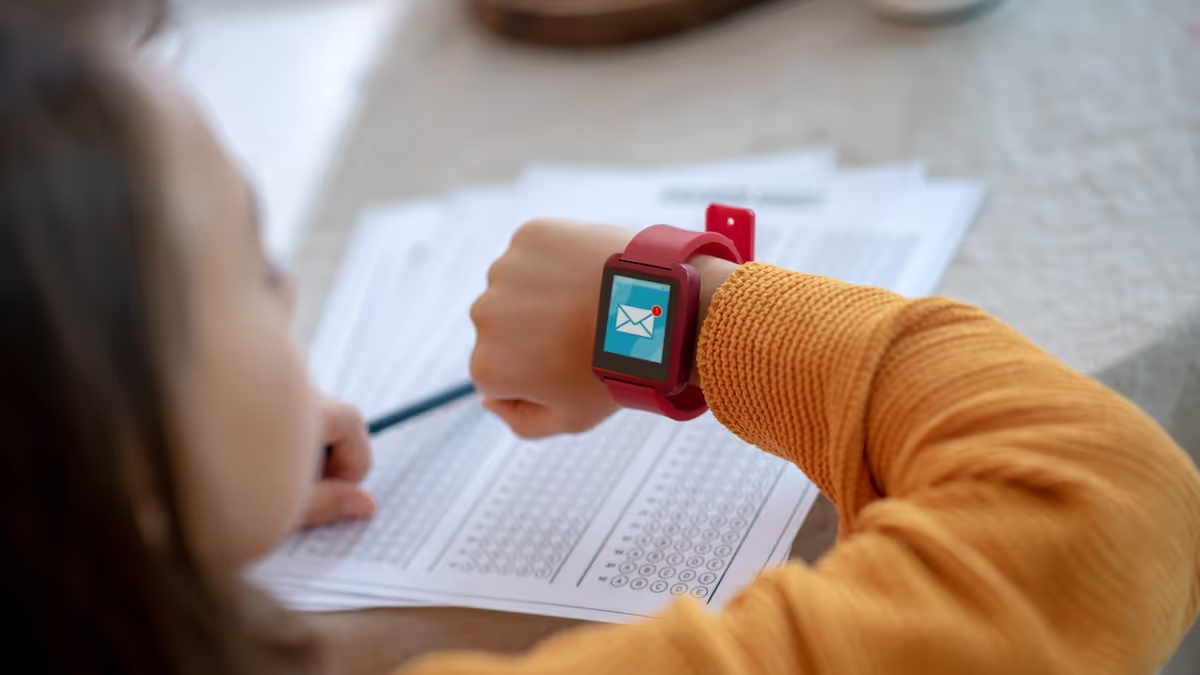
Originally published: February 4, 2025
Phones in schools have been a concern for years—but now, smartwatches are stepping in to fill that digital void. In this blog (and podcast episode), I explore how devices like the Apple Watch, Gizmo, and Gabb are quietly reintroducing distractions into classrooms, even at the elementary level.
I spoke with school counselor Tammy Fisher, PhD, who shared how her team shifted from frustration to empowerment by implementing Away For The Day policies that include not just phones but smart watches too. Her message? Kids can handle discomfort. In fact, learning to sit with it might be one of the most valuable skills we can teach.

Originally published: July 8, 2025
Isabelle, a teen I interviewed for our Parenting in the Screen Age podcast, shared her raw, courageous journey through body dysmorphia, disordered eating, and recovery—much of it triggered and reinforced by what she saw on social media.
What started with “healthy eating” trends quickly spiraled. But with support and treatment, and honesty, Isabelle found her way back and now helps others understand how social media can quietly and powerfully shape self-image.
Learn more about showing our movies in your school or community!
Join Screenagers filmmaker Delaney Ruston MD for our latest Podcast

Learn more about our Screen-Free Sleep campaign at the website!
Our movie made for parents and educators of younger kids
Learn more about showing our movies in your school or community!
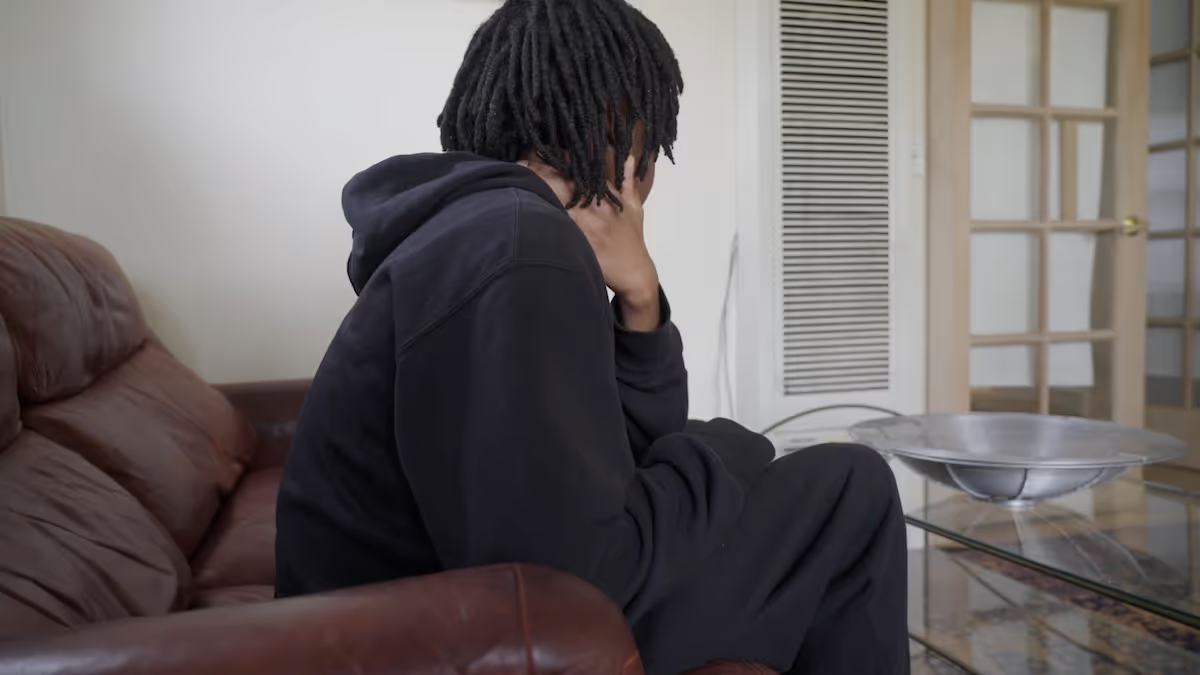
Originally published: April 29, 2025
Are boys immune to the mental health impacts of screen time? Not even close.
In this blog, I share excerpts from my podcast interview with psychologist and researcher Jean Twenge, PhD, who breaks down what large-scale data sets are really telling us about video gaming, screen time, and teen depression.
Her findings are sobering: clinical depression rates have doubled among boys in recent years—and heavy gaming (5+ hours a day) is linked to some of the poorest mental health outcomes.
There’s nuance here, and Twenge unpacks it beautifully. If you’re raising or working with boys, this is a must-read.
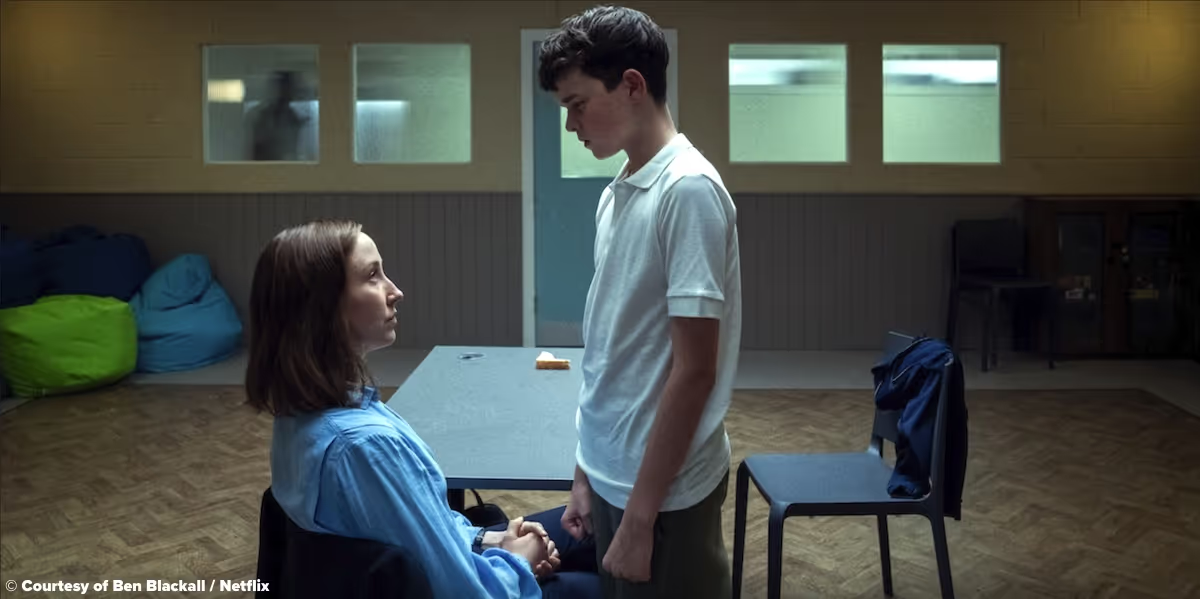
Originally published: April 8, 2025
Even if you didn’t watch Netflix’s fictional series Adolescence, you likely heard the buzz. This blog takes the themes of the show—online misogyny, isolation, sexting, bullying—and distills them into actionable takeaways for real-world parenting.
From device-free bedrooms to understanding the silent pressures boys and girls face online, this blog offers five key moves parents can make today. Because at the heart of all the tech and turmoil is a simple truth: kids don’t need more control. They need more connection.
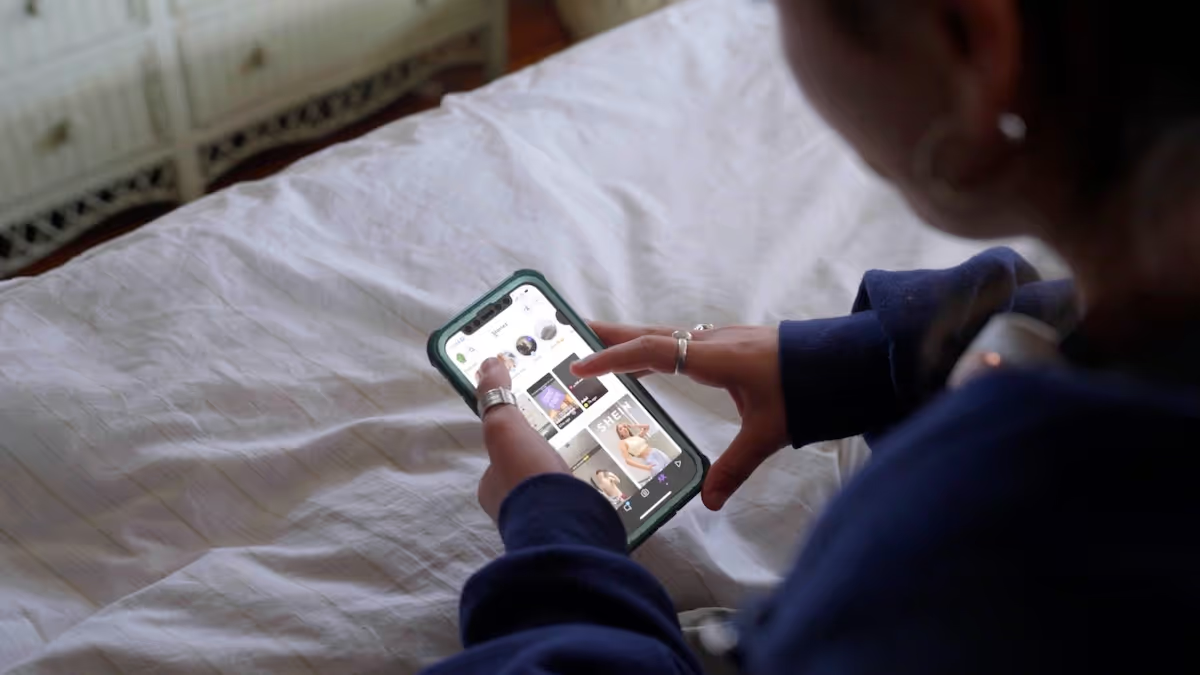
Originally published: March 25, 2025
Whippets. Vapes. Fentanyl-laced pills. THC edibles. Mushrooms.
These aren’t topics we want to talk about—but they’re showing up in our kids’ feeds, wrapped in humor, aesthetics, and influencers’ approval. This blog outlines five substance-related trends on social media and suggests a simple, empathy-first conversation model parents can use: “I just learned something…”
No lectures. No fear tactics. Just curiosity, honesty, and concern for what teens are navigating every day online.
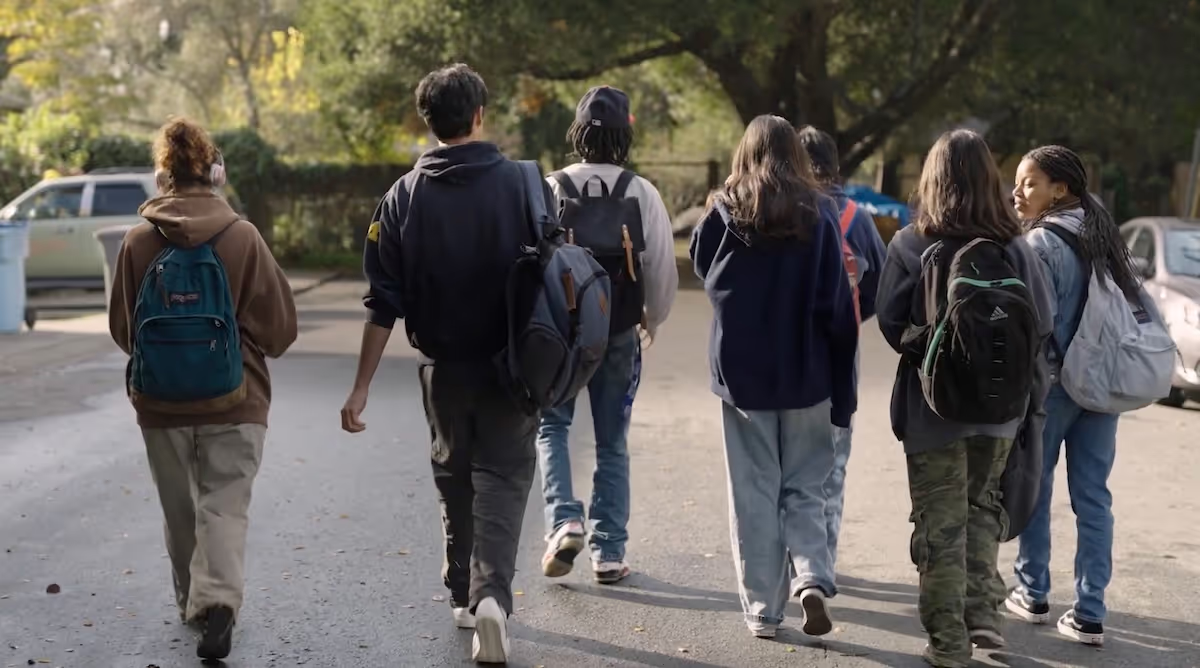
Originally published: February 18, 2025
“Everyone’s doing it” — or are they?
In this blog, I dive into my podcast conversation with Lisa Wade, PhD, author of American Hookup, to unpack the myths and realities of hookup culture among college-aged adolescents. Turns out, most young people aren’t happily participating—many feel trapped, unsure, or quietly longing for something more meaningful.
We talk about why teens feel stuck, what the unspoken “rules” of hookup culture are, and how parents can start gentle, non-judgmental conversations that open space for honesty and self-worth.
These topics aren’t easy—but they matter. The more we talk about them, the more our kids will feel safe doing the same. Whether it’s setting tech boundaries, navigating mental health, or just asking, “What have you been seeing lately online?” — your presence and interest make a world of difference.
And remember, I deeply appreciate hearing from you. Email me at Delaney@screenagersmovie.com
Learn more about showing our movies in your school or community!
Join Screenagers filmmaker Delaney Ruston MD for our latest Podcast

Learn more about our Screen-Free Sleep campaign at the website!
Our movie made for parents and educators of younger kids
Join Screenagers filmmaker Delaney Ruston MD for our latest Podcast
Be sure to subscribe to our YouTube Channel! We add new videos regularly and you'll find over 100 videos covering parenting advice, guidance, podcasts, movie clips and more. Here's our most recent:
As we’re about to celebrate 10 years of Screenagers, we want to hear what’s been most helpful and what you’d like to see next.
Please click here to share your thoughts with us in our community survey. It only takes 5–10 minutes, and everyone who completes it will be entered to win one of five $50 Amazon vouchers.
As summer rolls on and a new school year fast approaches, I’ve been reflecting on the powerful conversations we’ve had together — on this blog, on the podcast, and in the incredible messages so many of you send me. It’s been a year of deep dives and hard truths, but also of hope, humor, and real progress.
So today, I’m rounding up six of the most-read blogs from 2025 so far. Stories and interviews that struck a chord with readers and offered real tools for parenting in the screen age. Whether you missed a few or want a quick refresher, I hope you’ll find something here that inspires a new conversation in your home, school, or community.
Let’s start with a surprisingly high-tech distraction you might not have seen coming…

Originally published: February 4, 2025
Phones in schools have been a concern for years—but now, smartwatches are stepping in to fill that digital void. In this blog (and podcast episode), I explore how devices like the Apple Watch, Gizmo, and Gabb are quietly reintroducing distractions into classrooms, even at the elementary level.
I spoke with school counselor Tammy Fisher, PhD, who shared how her team shifted from frustration to empowerment by implementing Away For The Day policies that include not just phones but smart watches too. Her message? Kids can handle discomfort. In fact, learning to sit with it might be one of the most valuable skills we can teach.

Originally published: July 8, 2025
Isabelle, a teen I interviewed for our Parenting in the Screen Age podcast, shared her raw, courageous journey through body dysmorphia, disordered eating, and recovery—much of it triggered and reinforced by what she saw on social media.
What started with “healthy eating” trends quickly spiraled. But with support and treatment, and honesty, Isabelle found her way back and now helps others understand how social media can quietly and powerfully shape self-image.

Originally published: April 29, 2025
Are boys immune to the mental health impacts of screen time? Not even close.
In this blog, I share excerpts from my podcast interview with psychologist and researcher Jean Twenge, PhD, who breaks down what large-scale data sets are really telling us about video gaming, screen time, and teen depression.
Her findings are sobering: clinical depression rates have doubled among boys in recent years—and heavy gaming (5+ hours a day) is linked to some of the poorest mental health outcomes.
There’s nuance here, and Twenge unpacks it beautifully. If you’re raising or working with boys, this is a must-read.

Originally published: April 8, 2025
Even if you didn’t watch Netflix’s fictional series Adolescence, you likely heard the buzz. This blog takes the themes of the show—online misogyny, isolation, sexting, bullying—and distills them into actionable takeaways for real-world parenting.
From device-free bedrooms to understanding the silent pressures boys and girls face online, this blog offers five key moves parents can make today. Because at the heart of all the tech and turmoil is a simple truth: kids don’t need more control. They need more connection.

Originally published: March 25, 2025
Whippets. Vapes. Fentanyl-laced pills. THC edibles. Mushrooms.
These aren’t topics we want to talk about—but they’re showing up in our kids’ feeds, wrapped in humor, aesthetics, and influencers’ approval. This blog outlines five substance-related trends on social media and suggests a simple, empathy-first conversation model parents can use: “I just learned something…”
No lectures. No fear tactics. Just curiosity, honesty, and concern for what teens are navigating every day online.

Originally published: February 18, 2025
“Everyone’s doing it” — or are they?
In this blog, I dive into my podcast conversation with Lisa Wade, PhD, author of American Hookup, to unpack the myths and realities of hookup culture among college-aged adolescents. Turns out, most young people aren’t happily participating—many feel trapped, unsure, or quietly longing for something more meaningful.
We talk about why teens feel stuck, what the unspoken “rules” of hookup culture are, and how parents can start gentle, non-judgmental conversations that open space for honesty and self-worth.
These topics aren’t easy—but they matter. The more we talk about them, the more our kids will feel safe doing the same. Whether it’s setting tech boundaries, navigating mental health, or just asking, “What have you been seeing lately online?” — your presence and interest make a world of difference.
And remember, I deeply appreciate hearing from you. Email me at Delaney@screenagersmovie.com
Be sure to subscribe to our YouTube Channel! We add new videos regularly and you'll find over 100 videos covering parenting advice, guidance, podcasts, movie clips and more. Here's our most recent:
Sign up here to receive the weekly Tech Talk Tuesdays newsletter from Screenagers filmmaker Delaney Ruston MD.
We respect your privacy.
As summer rolls on and a new school year fast approaches, I’ve been reflecting on the powerful conversations we’ve had together — on this blog, on the podcast, and in the incredible messages so many of you send me. It’s been a year of deep dives and hard truths, but also of hope, humor, and real progress.
So today, I’m rounding up six of the most-read blogs from 2025 so far. Stories and interviews that struck a chord with readers and offered real tools for parenting in the screen age. Whether you missed a few or want a quick refresher, I hope you’ll find something here that inspires a new conversation in your home, school, or community.
Let’s start with a surprisingly high-tech distraction you might not have seen coming…

Originally published: February 4, 2025
Phones in schools have been a concern for years—but now, smartwatches are stepping in to fill that digital void. In this blog (and podcast episode), I explore how devices like the Apple Watch, Gizmo, and Gabb are quietly reintroducing distractions into classrooms, even at the elementary level.
I spoke with school counselor Tammy Fisher, PhD, who shared how her team shifted from frustration to empowerment by implementing Away For The Day policies that include not just phones but smart watches too. Her message? Kids can handle discomfort. In fact, learning to sit with it might be one of the most valuable skills we can teach.

Originally published: July 8, 2025
Isabelle, a teen I interviewed for our Parenting in the Screen Age podcast, shared her raw, courageous journey through body dysmorphia, disordered eating, and recovery—much of it triggered and reinforced by what she saw on social media.
What started with “healthy eating” trends quickly spiraled. But with support and treatment, and honesty, Isabelle found her way back and now helps others understand how social media can quietly and powerfully shape self-image.
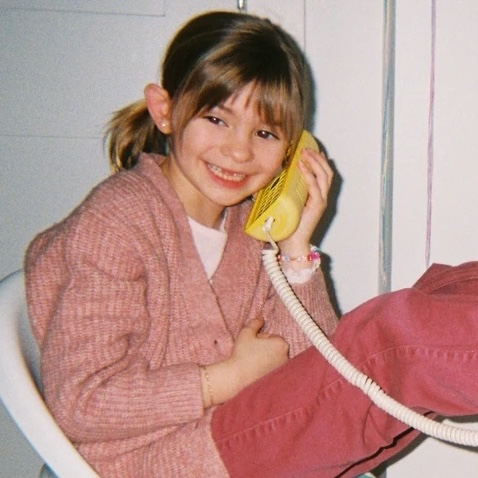
Some families are exploring a new, Wi-Fi-enabled landline phone that allows kids to communicate without screens. This blog explains how the phone works, why parents value its simplicity and built-in controls, and how groups of families are adopting it together to reduce pressure around smartphones. A parent conversation highlights shared buy-in, voice-only communication, and giving kids more independence while delaying personal devices.
READ MORE >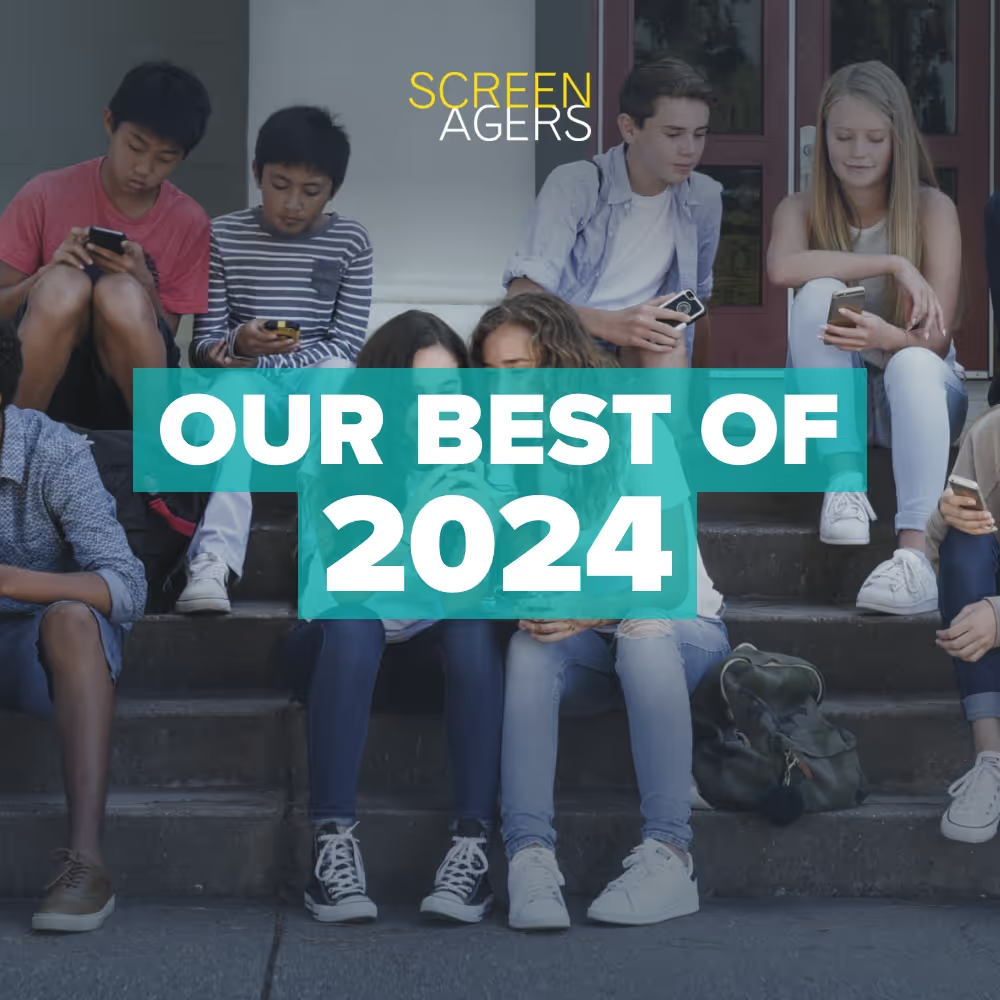
Reflecting on a year filled with meaningful conversations and valuable insights, we’re excited to share a roundup of our most popular Tech Talk Tuesday Blogs, Screenagers Podcasts, and YouTube bites. This list includes the top 10 blog posts that sparked discussion, the podcast episodes that resonated most with our audience, and the five most-watched YouTube videos of the year.
READ MORE >for more like this, DR. DELANEY RUSTON'S NEW BOOK, PARENTING IN THE SCREEN AGE, IS THE DEFINITIVE GUIDE FOR TODAY’S PARENTS. WITH INSIGHTS ON SCREEN TIME FROM RESEARCHERS, INPUT FROM KIDS & TEENS, THIS BOOK IS PACKED WITH SOLUTIONS FOR HOW TO START AND SUSTAIN PRODUCTIVE FAMILY TALKS ABOUT TECHNOLOGY AND IT’S IMPACT ON OUR MENTAL WELLBEING.
